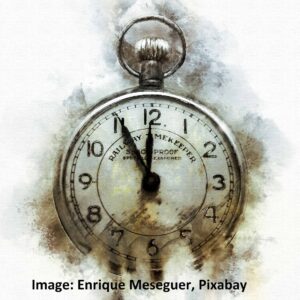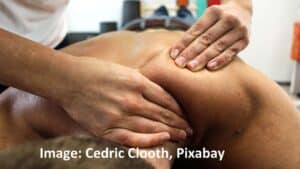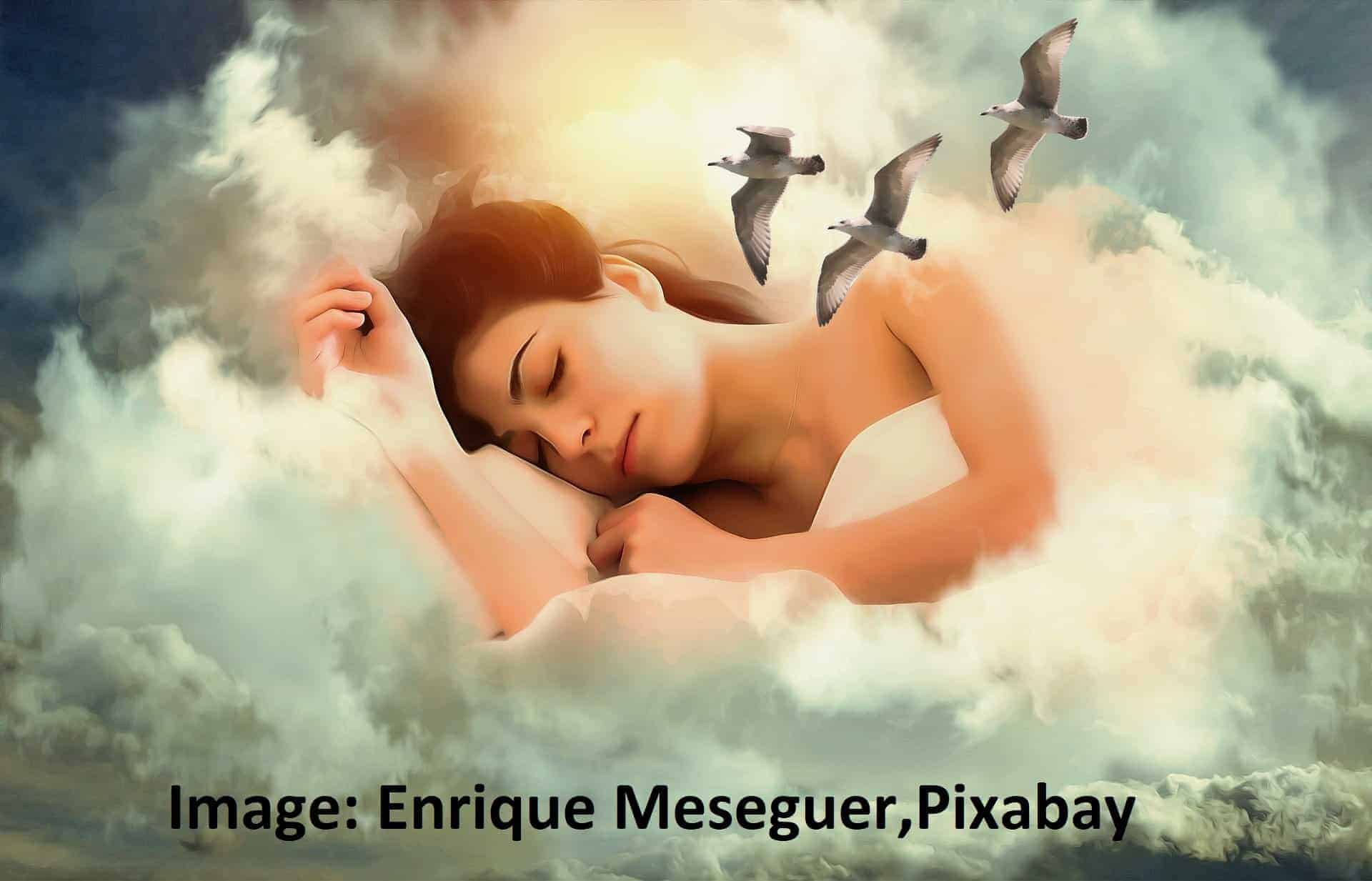[vc_row][vc_column][vc_column_text]If you suffer from Insomnia, natural cures may really help you to enjoy a good night’s sleep. It goes without saying how essential sleep is if you want to enjoy great health and allow for your body to heal. More and more we can attribute various conditions to lack of sleep and health-benefits from good quality sleep.
There has been so much written on finding ways to improve sleep, so I want to give you a good overview of some of the ways to enhance your sleep. We all know lots of remedies and lifestyle factors that come into play, but I think it is good sometimes, to take a bird’s eye view.
As you read through this, see if there are any natural cures you can use to help with insomnia. And be sure to check out below, the research of Remedial massage and sleep – really interesting.
Natural Remedies for Insomnia
Here are a few of the well-know herbs that we use to sleep. If you grow any of these yourself then that’s wonderful and they certainly can be used as a tea before bed. Depending on what’s causing the insomnia, I find some of my clients get relief from using relaxing and sleeping teas from their local supermarket. If it helps, great, but just remember it may be band-aiding the problem and would be worth getting some professional help. Otherwise go for it!
Note: The other important thig to remember is that the quality and preparation of the herbs will make all the difference in terms of its efficacy. (It’s the same thing for supplements).[/vc_column_text][/vc_column][/vc_row][vc_row][vc_column][vc_empty_space height=”50px”][/vc_column][/vc_row][vc_row][vc_column][cq_vc_todolist header=”Common Herbs For Sleep” headercolor=”#000000″ headerbackground=”#069b01″ icon=”fa-square-o,fa-square-o,fa-square-o,fa-square-o,fa-square-o,fa-square-o,fa-square-o”]
[/cq_vc_todolist][/vc_column][/vc_row][vc_row][vc_column][vc_empty_space height=”50px”][/vc_column][/vc_row][vc_row][vc_column][vc_column_text]
Do You Have Any Of These Symptoms?
May be signs of sleep deprivation.
slowed down thought processes
memory loss
unhealthy food choices
elevated stress and
increased anxiety levels
irritability
exacerbation of pre-existing symptoms
dementia for example
Enjoy Benefits Of Great Sleep
It’s worth taking the time to make sure your sleep is optimal. We know that good sleep has many health-benefits: promotes general good health, allows the body to heal better, stimulates the immune system , relax muscles, improve blood circulation, reduces pain and reduces anxiety.
The 6 point Check List
Sometimes when dealing with insomnia, the best cure can be some every-day, common sense approaches:
- Many people find value in having a regular time to sleep. See if you can be a bit more organised so that you go to bed at the same time most nights.
- Shift workers (and if you have jet lag) brings an extra challenge. In these situations it is really important to focus on your general
 health as interruption to natural biorhythms is an extremely stressful physiological event. In my clinic I use various tonics for example to help the body cope. So you can do the same sort of thing by making sure you are having foods that are highly nutritious and nutrient dense and perhaps include some appropriate supplements.
health as interruption to natural biorhythms is an extremely stressful physiological event. In my clinic I use various tonics for example to help the body cope. So you can do the same sort of thing by making sure you are having foods that are highly nutritious and nutrient dense and perhaps include some appropriate supplements. - Make sure your bedroom is dark, quiet and cool. So obvious, but are there some improvements you can make. Have you ever considered using ear plugs or an eye mask? The are high-tech noise reduction ear plugs available.
- Bed Comfort: it might be time to renew your bed. It can be difficult to know what type of bed to get isn’t it? I have had clients tell me that only a high end bed provides the comfort and support they need while other clients tell me they can generally sleep on any mattress and they sleep well. It’ very individual and I’d suggest speaking to a knowledgeable sales person about it.
- White noise can really help you to sleep if you are disturbed by noise. There are some great devise and apps available. I have one I use if my dog is restless and keeping me awake at night! I set it for an hour, choose the white noise I want and it works wonders.
- Some people find it helpful to have a note pad beside the bed so if you think of something that you need to remember, simply write it down.
Exercise – An Essential!
A study (1) conducted in 2018 stated, “We found that exercise interventions led to improvements in subjective sleep quality for people with insomnia disorder and insomnia symptoms. “ But it is important to note that the authors H1 Lowe etal, went on to say that , “The reliability of significant findings is reduced by methodological limitations. Recommendations are made to improve the quality of future research.” In other words things aren’t black and white with regards to the review they conducted. It is really important however that people themselves did notice an improvement in sleep with more exercise. So exercise may indeed be a natural treatment for insomnia. – and this is something to take note of and to take advantage of.
So this lifestyle factor may be something for you to address. And of course the other thing is the timing of exercise and how much you do. I find with my clients there needs to be a bit of experimentation here. I used to have intense swimming training at 6.30 PM for an hour and then that night. 10-11 PM, I would definitely be able to sleep well and easily. Body temperature and blood pressure had decreased and dinner was well-digested. I know some people who would be to ‘stirred up’ at night as a result and so find a morning training session to be more effective for them.
Science Shows Remedial Massage Helps
 Perhaps Remedial Massage can offer you a natural cure to your insomnia. Check out the 3 really interesting studies below that show the effect of massage therapy. You can look up these excellent studies yourself if you’re keen – see the references right at the bottom. There are endless examples showing just what Massage Therapy can do. Now I know many of you already do this, but you might like to think about helping your health and healing by incorporating Massage into your health-care routine.
Perhaps Remedial Massage can offer you a natural cure to your insomnia. Check out the 3 really interesting studies below that show the effect of massage therapy. You can look up these excellent studies yourself if you’re keen – see the references right at the bottom. There are endless examples showing just what Massage Therapy can do. Now I know many of you already do this, but you might like to think about helping your health and healing by incorporating Massage into your health-care routine.
One study (2) done this year looked at the effect of back massage on people in intensive care. They assessed affects on vital signs, sleep quality, anxiety and depression. The results suggested a 10 minute back massage can improve the quality & duration of sleep, breathing and anxiety levels.
Hang, Y. Y. and Lin, C. L.; Chang, L. Y. (3) found something to make shift worker breath a sigh of relief! Nurses on rotating night shifts were massaged with lavender oil, some with just oil and others were used as a control. Following the essential oil massage, there was significant improvement their sleep which was assented using the Pittsburgh Sleep Quality Index (4) specifically sleep quality, sleep disturbances and how well one functioned during the day, were all improved. Overall the authors of this study suggested that aromatherapy massage may improve sleep quality in nurses on a rotating night shift.
Over the years I have treated a lot of clients with fibromyalgia using Naturopathic and Body Work approaches. Castro-Sánchez et al. (5) showed that massage / myofascial release can reduce pain, help with the anxiety as well as improve sleep in people suffering from this condition. If you are in Sydney and would like to visit the centre for a Remedial Massage treatment, check pout my Massage Web Site Page that tells you all about my treatments and how I work.
Pictures:
Woman Sleeping: woman-3403604_1920 Image: Enrique Meseguer, Pixabay
Guy Massage: Image: Cedric Clooth, Pixabay
References
1: Clin Psychol Rev. 2019 Mar;68:1-12. doi: 10.1016/j.cpr.2018.11.002. Epub 2018 Nov 16.
Does exercise improve sleep for adults with insomnia? A systematic review with quality appraisal.
Lowe H1, Haddock G2, Mulligan LD3, Gregg L1, Fuzellier-Hart A1, Carter LA4, Kyle SD5.
https://www.ncbi.nlm.nih.gov/pubmed/30617012
2: Hsu WC; Chi Mei Medical Center, Tainan, Taiwan, Guo SE; Graduate Institute of Nursing, College of Nursing, Chang Gung University of Science and Technology (CGUST), Puzi, Taiwan.; Chronic Diseases and Health Promotion Research Centre, CGUST, Puzi, Taiwan.; Division of Pulmonary and Critical Care Medicine, Chiayi Chang Gung Memorial Hospital, Chang Gung Medical Foundation, Puzi, Taiwan.; Department of Safety Health and Environmental Engineering, Ming Chi University of Technology, New Taipei City, Taiwan. Chang CH; Graduate Institute of Nursing, College of Nursing, CGUST, Puzi, Taiwan. Nursing In Critical Care [Nurs Crit Care] 2019 Apr 03. Date of Electronic Publication: 2019 Apr 03 Publisher: Wiley Country of Publication: England NLM ID: 9808649 Publication Model: Print-Electronic Cited Medium: Internet ISSN: 1478-5153 (Electronic) Linking ISSN: 13621017 NLM ISO Abbreviation: Nurs Crit Care
3: Chang, Y. Y.; Lin, C. L.; Chang, L. Y. Nursing Department, Taichung Veterans General Hospital, Taichung, Taiwan. St. Needs Aromatherapy Care Center, Palliative Ward, Taichung Veterans General Hospital, Taichung, Taiwan. Evidence-based Complementary & Alternative Medicine (eCAM) (EVID BASED COMPLEMENT ALTERN MED), 7/6/2017; 2017: 1-8. (8p)
4: Psychiatry Res. 1989 May;28(2):193-213. The Pittsburgh Sleep Quality Index: a new instrument for psychiatric practice and research. Buysse DJ1, Reynolds CF 3rd, Monk TH, Berman SR, Kupfer DJ.
5: Castro-Sánchez, Adelaida María; Matarán-Peñarrocha, Guillermo A.; Granero-Molina, José; Aguilera-Manrique, Gabriel; Quesada-Rubio, José Manuel; Moreno-Lorenzo, Carmen. Department of Nursing and Physical Therapy, University of Almería (UAL), 04120 Almería, Spain. Health Distric of La Vega-Andalusian, Health Public Service (Málaga), 29200 Málaga, Spain. Department of Statistic, University of Granada (UGR), 18071 Granada, Spain. Department of Physical Therapy, University of Granada (UGR), 18071 Granada, Spain. Evidence-based Complementary & Alternative Medicine (eCAM) (EVID BASED COMPLEMENT ALTERN MED), Jan2011; 8(1): 1-9. (9p)[/vc_column_text][/vc_column][/vc_row]

